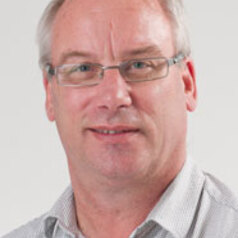
Roger Mulder
Professor of Psychiatry, University of Otago
My academic interests include mood disorders, personality disorders, genetics, neurobiology, suicide and early psychosis.
Less ![]()
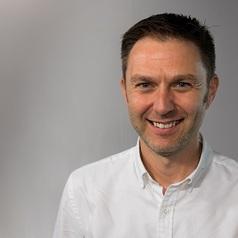
Roger Sturmey
Professor of Reproductive Medicine, University of Hull
Jointly appointed Professor of Reproductive Medicine at the Hull York Medical School and Senior Research Fellow at The University of Manchester, with research interests in energy metabolism and very early embryo development. I focus on understanding how metabolic events around the time of conception can affect development and lifelong health of the offspring, in humans and animals. Particularly interested in in vitro fertilisation and associated procedures and how this differs from natural conception - and fascinated by the oft-neglected Fallopian tube. Personal interests in national and global politics, particularly how this affects research and higher education. Passionate about equality of opportunity in science and education for all.
Less ![]()
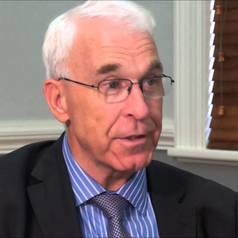
Roger Watson
Professor of Nursing, University of Hull
Roger Watson is a graduate of The University of Edinburgh with a PhD in biochemistry from The University of Sheffield who qualified in nursing at St George’s Hospital, London. Working in care of older people, he has a special interest in the feeding and nutritional problems of older people with dementia. He is Editor-in-Chief of Journal of Advanced Nursing and Editor of Nursing Open. A frequent visitor to the Far East, South East Asia and Australia, he has honorary and visiting positions in China, Hong Kong, and Australia. He is Professor of Nursing, University of Hull, UK and was a member of the UK 2014 Research Excellence Framework sub-panel for Allied Health Professions, Dentistry, Nursing and Pharmacy.
Less ![]()

Roger B. Alfani
Core Fellow of Religious Studies and International Affairs, Seton Hall University
Roger B. Alfani completed his Ph.D. in religious studies and peacebuilding at the University of Montreal, Canada, where he previously studied theology and biblical studies for his M.A. He also holds an Executive M.S. degree in International Affairs with specialization in Foreign Policy Analysis from Seton Hall University in New Jersey.
Alfani’s current research projects explore the nexus between religion and foreign policy, and the relation between religion, resilience, and refugees. He is also interested in the role of religious actors in peacebuilding efforts in the Great Lakes Region of Africa, in general, and in the Democratic Republic of Congo, in particular. Other research interests of Alfani cover international relations, local ownership, and African theologies. He is the author Religious Peacebuilding in the Democratic Republic of Congo (Peter Lang, 2019).
In the classroom, Alfani uses a participatory method built upon three main pillars, namely knowledge and experience dissemination, mutual learning, and attitude of fairness. He does not only provide a space (which becomes a community) conducive to a positive and effective learning experience through "power-sharing" and "engaged pedagogy" strategies, but he also ensures that each student thinks critically (and develops this skill) and invites them to share their thoughts.
Less ![]()
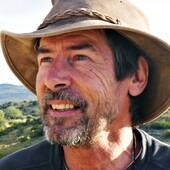

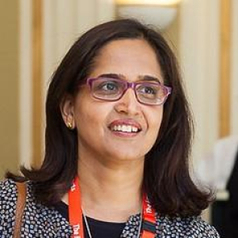

Rohini J Haar
Faculty, Epidemiology Division, School of Public Health, University of California, Berkeley
Dr. Rohini Haar is an emergency medicine physician and faculty in the Division of Epidemiology at the School of Public Health. She also serves as research fellow and lecturer at the Human Rights Center at UC Berkeley and medical advisor at Physicians for Human Rights. Dr. Haar’s research interests include studying the health impacts of torture, violations of free speech and assembly, and conflict. She leads studies on the impact of violence against health in humanitarian settings, the health impacts of crowd control weapons and the social, economic and health consequences of climate-related crises in California.
Less ![]()

Rohit Ram
PhD Student, Social Data Science, University of Technology Sydney
I'm a PhD candidate at the University of Technology Sydney, interested in how people exhibit opinions and behaviours in online social environments.
I'm interested in online social behaviour and discourse modelling, because I consider these incredibly important for understanding and mitigating modern phenomena. There are several modern challenges where this modelling helps; firstly, understanding and mitigating the spread of misinformation online (#5g #covid19 , #qanon, etc.), secondly, profiling characteristics and behaviours of online users (Voting practices, personality profiling, etc.) , and finally, identifying highly influential users and ideas. I am formally trained in computer science and actuarial science, completing my Bachelor of Advanced Computing (Honours) and Bachelor of Actuarial Studies at the Australian National University in 2019. I continue to focus my learning toward statistical learning methods, data science practises, and research methods.
Less ![]()
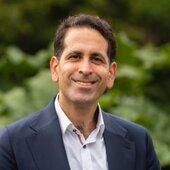
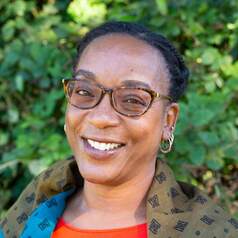
Roiyah Saltus
Professor of Sociology, University of South Wales
Health and wellbeing are not just about our bodies and physiology, but about the webs we weave and that are woven around us: our relationships, home, community, economy and culture. Community-focussed, place-based approaches to research, and ‘ways of knowing’ that include nuanced and diverse aspects of everyday health and wellbeing are crucial in policy and practice developments seeking to address the low health and wellbeing outcomes that continue to impact poorer, marginalised populations.
Since joining USW in 2002, I have led teams of researchers, and collaborated with colleagues across the UK on a wide range of studies and scholarly activities, securing close to £1m of research funding from the Welsh Government, ESCR, AHRC and others. A key aspect of my research activity has been to draw out the voices of people from marginalised, migrant and minority ethnic population groups; to spotlight issues of access, engagement and utilisation in a range of health and social care settings; and to arrive at innovative solutions and new knowledge pathways drawn from a range of stakeholder perspectives, practices and sensibilities.
I am a Sociologist and my research incorporates critical race theory, feminism, community development theory, and critical perspectives in health, social policy and practice. My abiding research interest is rooted in intersectionality, in particular, the interplay and impact of, gender, age and social class as experienced by racialised and minority ethnic population groups.
My early research included leading on the establishment of a Wales-wide infrastructure research support service that collated and made accessible online research, best practice and policy resources; conducting studies exploring cultural competencies of social work and nursing; and funding, supporting and (most importantly) evaluating the strategies, approaches and outcomes of locally based health and wellbeing small-grant activities led by community organisations. My completed funded projects include qualitative and mixed-methods studies on understandings of dignity, and on experiences and expectations of care, drawing on the perspectives of older Caribbean migrants (men and women) in a localised context, and on the perspectives of older women from a range of minority ethnic backgrounds, alongside the surveyed findings of community-based social care and support professionals across Wales.
‘Go Home’: Mapping the unfolding controversy of Home Office immigration campaigns ended in 2015. This 18-month, multi-site, interdisciplinary research project explored the impact on local communities and national debate of current publicity campaigns about migration by the UK Home Office. Funded by the ESRC (Rapid Response Strand – £200k), this project operated across eight universities; I led on the Cardiff work package.
Another recently completed study is Representing communities: developing the creative power of people to improve health and wellbeing (July 2013 to July 2017), a large multi-siteprojectfunded by the Communities, Cultures, Health and Wellbeing strand of Connected Communities (AHRC/ESRC). Using five detailed case studies rooted in communities across the UK (including two in Wales), the project aims to establish how community representations produced through creative-arts practices can be used as forms of evidence to inform health-related policy and service development. I led on the Representing Butetown work package (£183k) and the focus was on the leisure pursuits, physical endeavours and creative activities of older people, with a focus on individual as well as collective wellbeing (behaviours, expectations and representations).
Less ![]()

Roksana Dobrin-De Grace
PhD Student in Developmental Psychology, Toronto Metropolitan University
Roksana (Roxy) Dobrin-De Grace is a second year PhD student in Psychology at Toronto Metropolitan University. She completed her Specialized Honours BA at York University in Psychology and her BEd at The Ontario Institute for Studies in Education and is an Ontario Certified Teacher (OCT). Her research interests include early childhood social cognition and the development of politeness norms in children.
Less ![]()
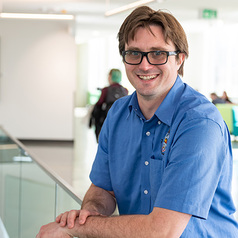
Roland Lee
Associate Professor, Department of Physical Sciences, MacEwan University
I have a varied background that has nurtured my skills and knowledge, allowing me to undertake an innovative and relevant research program, looking at science and technology development for the biomass conversion industry. This is inclusive of research looking at biomass conversion and value adding, use of CO2 in extraction/separation, development of novel catalysts, novel analytic tools and techniques, process analytics and alternative process tools for green and flow chemistry.
Less ![]()
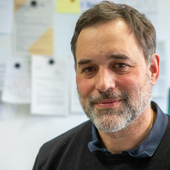
Rolf Frankenberger
Managing Director Research, Institute for Research on Right-Wing Extremism (IRex), University of Tübingen
Less ![]()

Rolf Quam
Associate Professor of Anthropology, Binghamton University, State University of New York
Rolf Quam is a paleoanthropologist whose research focuses on evolutionary aspects of the temporal bone, mandible and teeth in our fossil human ancestors. In particular he has been actively involved in reconstructing the hearing capacities in fossil humans. This marks the first time that an aspect of sensory perception has been reconstructed in our fossil human ancestors, and this line of research represents a new approach to one of the oldest questions in human evolutionary studies: the emergence of language.
He also participates in the ongoing fieldwork being carried out at the Pleistocene locality of Atapuerca in northern Spain. These sites contain some of the richest human fossil bearing deposits in the world and have recently yielded the oldest human fossil ever found in Europe. During the course of his research, he has personally studied a wide diversity of original human fossils from Europe, the Middle East and Africa.
Less ![]()
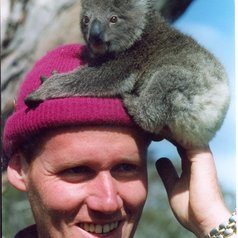
Rolf Schlagloth
Koala Ecologist, CQUniversity Australia
PhD koala ecology
Masters Edu. Studies
Grad. Dip. Edu.
B. Appl. Sci.
Cert. IV (Ecotourism)
Less ![]()
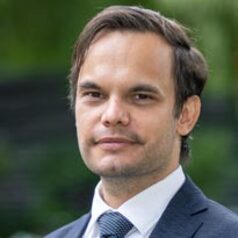
Romain Boulongne
Assistant Professor de Dirección Estratégica, IESE Business School (Universidad de Navarra)
Romain tiene un doctorado en Gestión Empresarial por la HEC Paris, un máster en Administración y Dinámica de la Organización por la Universidad de París y un grado en Ciencias Políticas por el Sciences Po Lille. Durante su estancia en la HEC, Romain también pasó un año como estudiante visitante de doctorado en el Grupo de Sociología Económica del MIT Sloan.
Su principal foco de investigación se centra en cómo los procesos de categorización —los diversos mecanismos cognitivos que la gente usa para dar sentido al mundo social— determinan la evaluación y el rendimiento social de las organizaciones en los mercados.
Otro aspecto de la investigación de Romain se basa en su interés más general por las cuestiones relacionadas con la sostenibilidad. Para abordarlos, utiliza métodos experimentales y enfoques empíricos a gran escala para explorar temas como el desempeño de formas alternativas de organización, la inversión de impacto y, en términos más generales, cómo las organizaciones pueden integrar los Objetivos de Desarrollo Sostenible (ODS) en sus estrategias.
Por último, Romain ha estado trabajando en estrecha colaboración con autoridades públicas y recientemente publicó un informe de política sobre el impacto de los intangibles en el rendimiento económico - un informe encargado por el Ministro de Industria francés.
Su trabajo ha sido publicado en Organization Science, en The Strategic Entrepreneurship Journal, en Strategic Management Journal y en Research in the Sociology of Organizations, entre otros.
Less ![]()
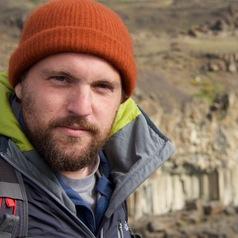
Romain Jolivet
Professeur des Universités, École normale supérieure (ENS) – PSL
Mes travaux portent sur l'analyse des déformations de la surface de notre planète, aussi bien à partir de données satellitaires que sismiques. Cela me conduit principalement vers l'étude des zones de faille actives et des séismes associés.
Après une thèse à l'Université de Grenoble, Alpes, je suis parti en post-doctorat au California Institute of Technology, en Californie, puis à Cambridge, au Royaume-Uni, avant de prendre un poste de Maître de Conférences, puis de Professeur des Universités à l'Ecole Normale Supérieure de la rue d'Ulm au sein du département de Géosciences et du Laboratoire de Géologie.
Less ![]()
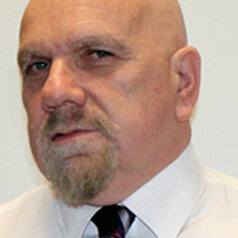
Roman Grynberg
Adjunct Professor, Griffith University
Roman Grynberg is a Polish-born professor of economics, author, and academic. He is specialised in international trade and commodities, and has written several research papers in the disciplines. He has written economics papers on the Southern African Customs Union, and his other research interests include Foreign International Trade, Microeconomics, International Commercial Diplomacy, Trade and Development and International Trade Relations.
He is also a regular columnist for The Namibian and has written for South Africa's Mail and Guardian on macroeconomic concepts. He holds a PhD in Economics, MA Economics and BEc. Roman is the Manager of the Economic Governance Programme, Pacific Islands Forum. Prior to this, he was the Deputy Director of Trade and Regional Integration at the Commonwealth Secretariat (2000-2005). He has also held positions with the CFTC ( Commonwealth Fund for Technical Co-operation and United Nations Conference on Trade and Development, as well as acting as an economic adviser to the Pacific Islands Forum and the Prime Minister of Papua New Guinea.
Less ![]()

Roman Gabriel Olar
Assistant Professor in Political Science, Dublin City University
My research focuses on the politics of authoritarian regimes, the legacies of authoritarianism, democratization processes and human rights violations. I am currently an Assistant Professor in Political Science at the School of Law and Government at Dublin City University. Previously, I was an Assistant Professor at Trinity College Dublin. I received my PhD from the Department of Government at the University of Essex in July 2018.
Less ![]()

Romane H. Cristescu
I am an ecologist with a wide range of interests in developing new methodologies in conservation to achieve results more accurately and efficiently - including using detection dogs or remote surveys (drones) ; restoration ecology ; conservation genetics ; fauna responses to habitat loss and fragmentation ; interactions and synergies in threats to endangered species and emerging infectious diseases in wildlife. I worked with spectacular and interesting animals including gorillas, dolphins and koalas.
I qualified as a veterinarian in France with a wildlife specialisation. I hold a Mater in genetics and a PhD in Ecology with the University of New South Wales. I worked as an advisor on Mine Closure / Rehabilitation in the Mining Industry, where I continued my research on restoration ecology.
I am a founding member of the University of the Sunshine Coast Detection Dogs for Conservation. I work especially with my dog Maya, trained on the target odour “koala poo” as a a Postdoc Research Fellow at USC in Dr Frere’s lab.
Less ![]()
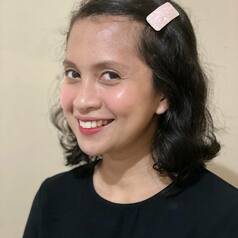
Romauli Panggabean
Environmental Economist for FOLU Indonesia, World Resources Institute
Romauli is currently working as the Environmental Economist in WRI Indonesia and contribute to various research project in WRI, especially in food and land use system and forest issues. Prior to her current position, she has been working in various institutions, such as NGOs, university, government agency, international research institution and national state-owned bank. Most of the position she had been appointed is related to economic research, consultancies in governmental assistance project and project management in Indonesia. In her free time, she passionate to cook for her family and friends and reading historical novel.
Less ![]()

Romeo Joe Quintero
PhD Student, Human Geography, York University, Canada
Romeo Joe Quintero is a PhD student in Human Geography at York University. He holds an MA in Women’s and Gender Studies at Carleton University and a BSocSci Hons in International Development and Globalization at the University of Ottawa. His research explores placemaking practices among forcibly displaced individuals induced by armed conflicts, natural disasters, and aggressive development projects.
Less ![]()
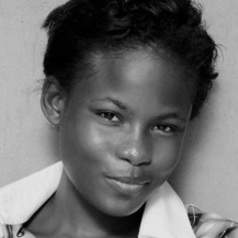
Romola Adeola
Legal Researcher, University of Pretoria
Dr Romola Adeola is a legal researcher with the Centre for Human Rights, Faculty of Law, University of Pretoria in South Africa. Her areas of expertise are law and policy aspects of migration, refugee protection and international development law. She holds a Doctor of Laws degree from the University of Pretoria.
Less ![]()
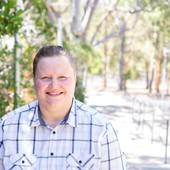
Romy Lauche
Deputy Director (Research), National Centre for Naturopathic Medicine, Southern Cross University
Less ![]()
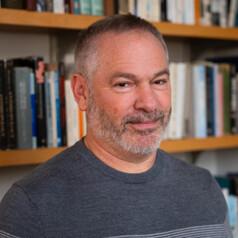
Ron Barrett
Professor of Anthropology, Macalester College
I am a medical anthropologist and former registered nurse. My research examines the social dimensions of infectious diseases, ritual healing practices, and caregiving at the end of life. I conducted major field research in India, and I have since been working on smaller projects in Tanzania, Thailand, and the United States. Prior to becoming an academic, my clinical nursing experience was in neuro-intensive care, brain injury rehabilitation, and hospice. I also worked a year in a viral genetics laboratory studying translational regulation in bacteriophages. All of this has been driven by my passion for exploring the intersections between the cultural and biological aspects of human experience and applying these findings to important health and social problems.
Books:
Aghor Medicine: Pollution, Death and Healing in Northern India – University of California Press. This book concerns the ritual healing practices of a heterodox religious group known as the Aghori, their beliefs concerning mortality and prejudice, and their therapeutic interactions with patients afflicted with socially stigmatizing diseases such as leprosy (Hansen’s disease, or HD). This book was awarded the 2008 Wellcome Medal by the Royal Anthropological Institute of Great Britain and Ireland.
Emerging Infections: Three Epidemiological Transitions from Prehistory to the Present – Oxford University Press. I am lead author of this interdisciplinary, multi-authored book, scheduled to be released in January 2024. It explains how recent increases in new, virulent, and drug-resistant infections have resulted from human practices that can be traced back to the Neolithic. This book is a retitled, highly revised, and greatly expanded second edition of An Unnatural History of Emerging Infections (2013).
Less ![]()

Ron Buliung
Professor, Department of Geography, Geomatics and Environment, University of Toronto
Ron Buliung is a University of Toronto Distinguished Professor in the Geographies of Disability and Ableism. He holds a Ph.D. (2004) in Urban Geography from McMaster University. He is a faculty member in the Department of Geography, Geomatics and Environment at UTM. He holds graduate faculty appointments at the University of Toronto in the Department of Geography and Planning, and in the Rehabilitation Sciences Institute. Ron has dedicated his career to studying the experiences of children and youth in cities. His early work focused on the journey to school, and how school travel connects with and impacts childhood health. During the past decade, he re-focused his research program toward the various ways in which disability and ableism are produced by and embedded within the institutions that govern and make the places within cities where we live, work, play, and learn. His interest in disability scholarship and the problem of ableism is motivated by family experiences with disabling institutions and environments. Recent published works have focused on access to education, disability and school transport, disability and climate change, and food insecurity for disabled persons. Professor Buliung teaches the graduate seminar, “Disability, Ableism and Place” in the Graduate Program in Geography and Planning.
Less ![]()

Ron Eglash
Professor of Information, University of Michigan
Dr. Ron Eglash holds a B.S. in Cybernetics, an M.S. in Systems Engineering, and PhD in History of Consciousness, all from the University of California. A Fulbright postdoctoral fellowship enabled his field research on African ethnomathematics, which was published by Rutgers University Press in 1999 as African Fractals: modern computing and indigenous design.
He is a tenured professor in the School of Information and Penny W. Stamps School of Art and Design (Stamps) at the University of Michigan.
Less ![]()
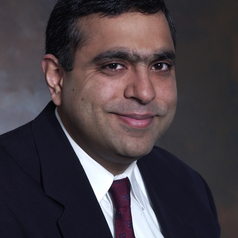
Ron Hira
Dr. Ron Hira, Ph.D., P.E., is an associate professor in the Department of Political Science at Howard University. Ron is also a research associate with the Economic Policy Institute in Washington, DC. Prior to joining Howard, Ron was an assistant and then associate professor and acting chair in the Department of Public Policy at Rochester Institute of Technology. He specializes in policy issues on technological innovation, offshoring, high-skill immigration, and the American engineering workforce.
Hira has written widely on offshoring, high-skilled immigration, innovation, and the decline of the middle class. Hira is co-author of the book, Outsourcing America (AMACOM 2005; 2nd edition 2008), which was a finalist for best business book in the PMA's Benjamin Franklin Awards. The Boston Globe called Outsourcing America an "honest, disturbing look at outsourcing." The Washington Post described the book as a "thorough and easy to grasp primer on the wrenching outsourcing debate."
In 2012, along with Prof. John Ettlie, Hira organized a National Science Foundation workshop on the Globalization of Engineering Research & Development. The result of the workshop is being turned into a book.
Previously, Ron worked as a control systems engineer and program manager with Sensytech, NIST, and George Mason University (GMU). He has been a consultant to numerous public and private organizations.
Ron completed his Post-Doctoral Fellowship at Columbia University's Center for Science, Policy, and Outcomes. He holds a Ph.D. in Public Policy from George Mason University (GMU), an M.S. in Electrical Engineering also from GMU, and a B.S. in Electrical Engineering from Carnegie-Mellon University. He is a licensed professional engineer, a senior member of IEEE, and served as Vice President for Career Activities of IEEE-USA, the largest engineering professional society in America.
Less ![]()
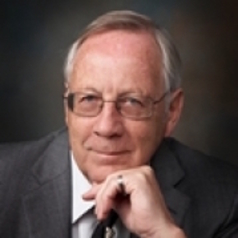
Ron Johnston
Executive Director, Australian Centre for Innovation, University of Sydney
Professor Ron Johnston is Executive Director of the Australian Centre for Innovation (ACIIC) and a Professor in the Faculty of Engineering & IT at the University of Sydney.
Educated initially as a scientist in Australia, the UK and the US, he has devoted most of his career to develop a better understanding and application of the ways that science and technology contribute to economic and social development, of the possibilities for managing research and technology more effectively, and of insights into the processes and culture of innovation.
Less ![]()
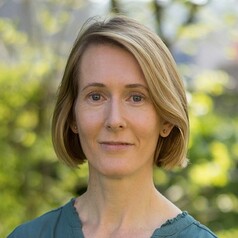
Rona Louise Thompson
Senior Scientist, Norwegian Institute for Air Research
I have a senior scientist position at the Norwegian Institute of Air Research (NILU). Currently my research focuses on the estimation of greenhouse gas emissions using atmospheric transport modelling and statistical optimisation. I received my PhD from Victoria University of Wellington in 2005 and held post-doc positions at the Max Planck Institute of Biogeochemistry (MPI-BGC), Jena, Germany and at the Laboratoire des Sciences du Climat et l'Environnment (LSCE), Gif sur Yvette, France,
Less ![]()

Ronald Cohen
Professor of Clinical and Health Psychology, University of Florida
I am the former Director of the Cognitive and Aging Memory Center at the Evelyn F. McKnight Brain Institute at the University of Florida, where I am currently a professor. My research focuses on the neuropsychology of attention and memory, and how they are affected by various factors such as reward, timing, aging, and brain disorders. I use a combination of behavioral, neuroimaging, and biomarker methods to investigate the neural mechanisms underlying these cognitive functions, and to identify potential interventions for improving them.
Less ![]()

Ronald Niezen
Professor of Practice, Departments of Sociology and of Political Science / International Relations, University of San Diego
I am a Professor of Practice in Sociology and Political Science / International Relations at the University of San Diego. An anthropologist by training and profession, I've done fieldwork in many countries, including Mali, Namibia, and northern Canada. I'm an expert on indigenous rights movements in Canada, Europe, and Africa. I have published ten nonfiction books that investigate such issues as digital security, surveillance, and human rights. Most recently I've written a novel about war crimes investigation, The Memory Seeker, released in February, 2023. Much of my current research uses open source investigation techniques, for which I received training in the Human Rights Center at Berkeley, the NGO Bellingcat, and the Institute for International Criminal Investigations in The Hague.
Less ![]()

Ronald Rapoport
Professor Emeritus of Political Science, William & Mary
Professor Ronald B. Rapoport is John Marshall Professor. He received his B.A. from Oberlin College and his PhD from the University of Michigan. Since 1980 he has been doing research on U. S. party activists funded by a series of grants from the National Science Foundation. His book (with Walt Stone of UC-Davis), Three’s a Crowd: The Dynamic of Third Parties, Ross Perot and Republican Resurgence, has just been published by the University of Michigan Press (2005). It is based on surveys with national samples of individuals attracted to Ross Perot’s presidential campaigns between 1992 and 2000, as well as interviews with Republican and Reform party leaders. He is on the editorial board of Political Research Quarterly, and previously served on the Political Science Review Panel of the National Science Foundation. He has published more than forty articles and book chapters in the areas of political behavior, political parties and women and politics. He is the co-editor (with Alan Abramowitz and John McGlennon) of The Life of the Parties. His courses focus on American politics and public opinion and voting, as well as survey research and polling.
Less ![]()

Ronald E. Hall
Professor of Social Work, Michigan State University
My research interests include mental health, intraracial racism, Bleaching Syndrome, black/white conflict, organizational issues and race relations. My social work research interests extend to four areas: special populations, human behavior and the social environment, social welfare policy and services and research methods.
Less ![]()
- Market Data




















